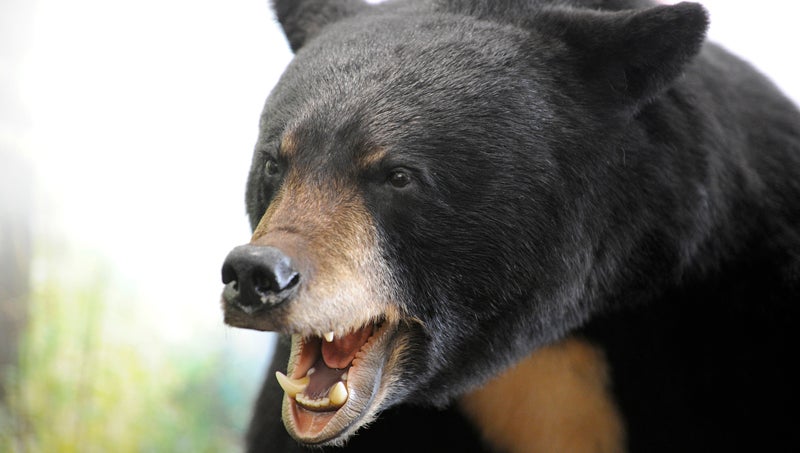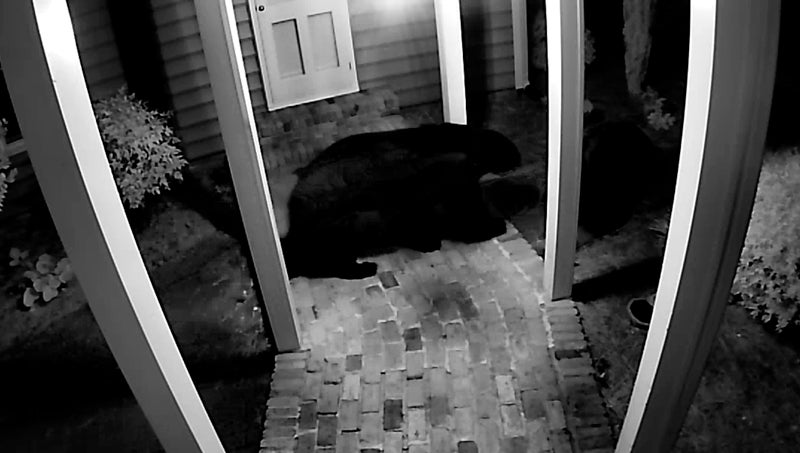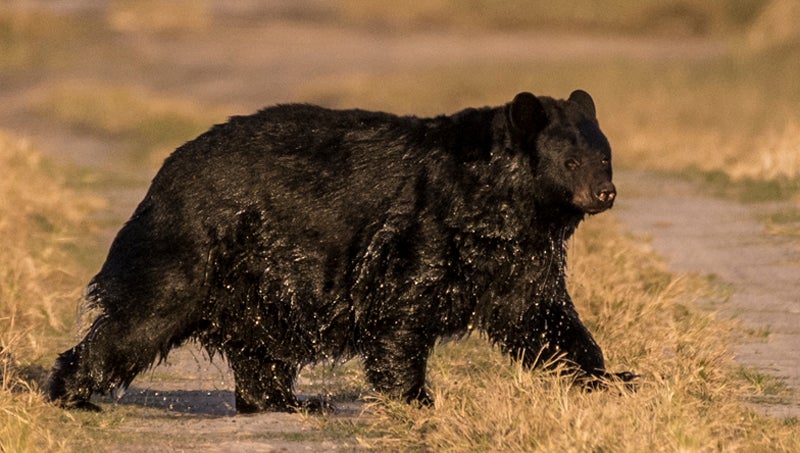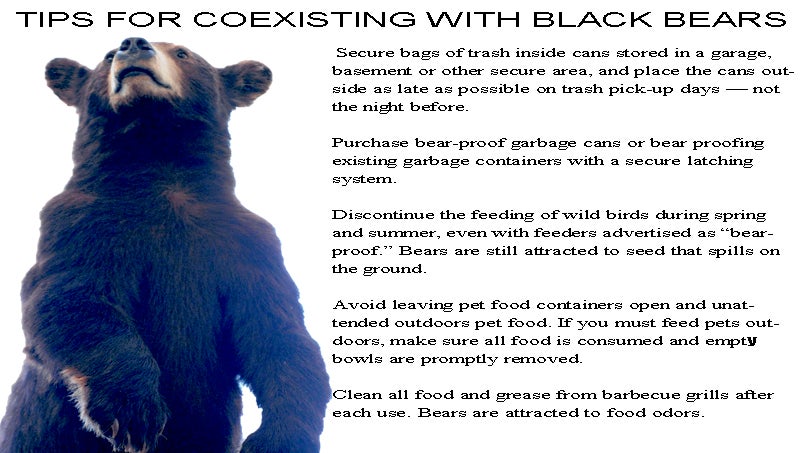Coexistence crucial for living alongside black bears
Published 6:56 pm Monday, April 30, 2018

- CLAWS AND TEETH: With powerful jaws and sharp claws, this black bear display at Goose Creek State Park reminds visitors of the power of these creatures. It is rare, however, for encounters between humans and black bears to turn violent. (Ashley Vansant/Daily News)
A loud sound breaks the quiet of a spring night. The dogs begin to bark. A homeowner jumps out of bed, fearful at what may be outside. Is it an intruder? Turning on the porch light, he sees a dark figure illuminated in the yard and scampering off into the woods.
The next morning, the trashcans are overturned and the bird feeder is broken. The careful observer may be able to notice the signs and leavings of the culprit: one of eastern North Carolina’s black bears.
While these fearsome creatures, sometimes weighing up to 700 pounds (the world record of 880 pounds was killed in Craven County), may be scary to encounter up close, black bears are far more interested in an easy meal than in dealing with humans.
Like their cartoon cousins, Yogi and Boo Boo, all these guys want is a picnic lunch. Yet for homeowners and neighborhoods, black bears seeking easy pickings can quickly become a property-damaging nuisance.

CAUGHT ON CAMERA: This surveillance footage still shows a black bear in unusually close proximity to a residence. In most cases, bears that wander this close to human settlement are in search of an easy meal. (Alexis Davis)
“They emerge this time of year, late March, early April and they’re hungry,” N.C. Wildlife Resources Commission District Biologist Chris Kent said. “At most of the sites visits I make, it’s a human created problem with easy food sources available.”
For neighborhoods where houses are in close proximity to one another, one individual leaving their trash out can quickly become a everyone’s problem. Bears seeking easy food recently caused a stir at Pamlico Plantation, with 13 residents emailing POA administrator Kassie Adams that a bear had visited their property. For property owners associations and property managers, this can create a challenge.
“A lot of our residents love to put their bird feeders out or their hummingbird feeders out and the bears look at that as an easy meal,” Adams said. “My biggest hurdle was getting residents to not leave their trash out overnight… If you have 99 percent of a community comply but then have one resident leave their trash out over night, that bear is going to continuously come in and ruin it for everybody.”

UP CLOSE AND PERSONAL: As omnivores, black bears will dine on both meat and plants, sometimes traveling great distances to secure a food source. Trashcans and bird feeders make for much easier fare when not properly attended by humans. (Nancy Haddock)
With one of the largest black bear concentrations in the world right here in eastern North Carolina, these creatures aren’t going anywhere. As a matter of policy, the NCWRC does not relocate bears, except in special situations such as cub rehabilitation.
“We don’t relocate bears for several reasons,” Kent said. “For one, you would just be moving a problem from one place to another place. For two, there’s just not vast expanses of wilderness where you can take a bear and expect that they won’t come in contact with other neighborhoods. The third reason is that it’s potentially dangerous for the humans and the bears.”
In rare situations where a bear exhibits aggressive behavior towards humans, Kent said that it might have to be euthanized. In most cases, however, the presence of bears in human settlements can be prevented. For this to happen, however, humans may have to change their behavior to create the conditions for coexistence.
“It is easy for us to coexist with wildlife,” Clark said. “Many people, if they don’t understand wildlife, they may fear it. The more people learn about wildlife, the less they fear it, and the little things we can do to alter our behavior can go a long way.”
A final piece of advice from Clark, specifically to beekeepers: Winnie the Pooh cartoons didn’t exaggerate. These massive beasts love nothing more than to snack on honey. When a black bear meets a field of beehives, the result can be thousands of dollars worth of damage to a beekeeper’s livelihood. Clark recommends an electric hot wire be installed around domesticated hives.
There are several resources available online through the NCWRC, all of which can be accessed at www.ncwildlife.org/Learning/Species/Mammals/Black-Bear. The commission has also established a wildlife conflict hotline at 866-218-2901 with a staff of biologists on hand to assist with concerns from 8 a.m. to 5 p.m. Monday through Friday.






